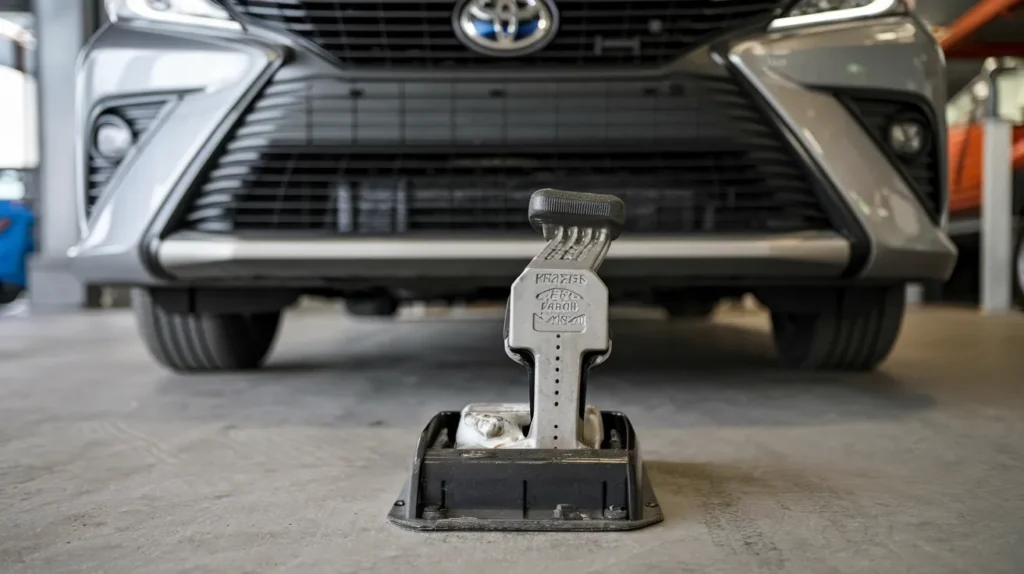If your Toyota Tundra makes a whining noise when accelerating, it may be due to a loose belt or low power steering fluid. It could also be a problem with the transmission or alternator. Get it checked to fix the issue.
Stay tuned with us as we will talk more about the Toyota Tundra whining noise when accelerating. We will explain what causes it and how to fix it.
What Is That Whining Noise When I Accelerate?
A whining noise during acceleration usually indicates a problem with the engine of the car or the transmission. It can happen if a belt is loose or the power steering fluid is low. Sometimes the transmission may be slipping or the gears may be damaged. A bad alternator can also make a whining sound. It is essential to inspect the car early to prevent more significant damage.
When Does The Noise Typically Occur?
The noise typically occurs when the car begins to accelerate. It can also come when turning or when the engine is under load. Sometimes, the noise increases in volume as the speed increases. It may not happen when the car is idle. Knowing when the noise starts can help find the problem fast.
What Are The Common Causes Of Whining Noise When Accelerating?

Here are some common reasons why a whining noise may occur when accelerating. Identifying the exact cause can help prevent more significant issues and improve your car’s performance.
1. Loose or Worn-out Serpentine Belt:
The serpentine belt is responsible for driving various components, such as the alternator and air conditioning system. If the belt becomes loose or worn, it may slip, causing a whining noise when the engine accelerates. Regular maintenance and belt replacement can prevent this issue.
2. Low Power Steering Fluid:
Power steering fluid helps the steering pump work smoothly. If the fluid level is low or there is a leak, the power steering pump may whine when turning or accelerating. It is essential to check the fluid levels regularly and top them up as needed.
3. Transmission Issues:
The transmission is a key part of the vehicle that helps transfer power from the engine to the wheels. If there are problems, such as slipping gears or worn-out components, the transmission may create a whining noise. This issue requires professional attention to avoid more expensive repairs later on.
4. Failing Alternator:
The alternator generates electricity for your car’s electrical system. When it starts to fail, it can make a whining noise, particularly during acceleration. A faulty alternator can cause electrical problems, so it is best to have it checked as soon as possible.
5. Worn-out Bearings:
Bearings in the engine or transmission are responsible for reducing friction. Over time, they can wear out and cause a whining noise. If you hear this sound, it could be a sign that the bearings need to be replaced to prevent further damage.
Why Does My Truck Make A Whining Noise When I Press The Gas Pedal?
A loose or worn-out serpentine belt could cause a whining noise when pressing the gas pedal. It may also occur if the power steering fluid is low or if the transmission is experiencing issues. A failing alternator or worn-out bearings could be other potential causes. Getting your truck checked can help identify the exact problem.
Also Read: Toyota 4runner Oil Type – A Complete Guide!
Why Is My Car Making A High-Pitched Noise When I Accelerate?
A loose or worn-out serpentine belt often causes a high-pitched noise when accelerating. It could also happen if the power steering fluid is low or if the alternator is failing. Sometimes, the transmission or worn-out bearings can cause this sound. It is a good idea to have the car checked to determine the exact cause.
How To Diagnose The Problem Of Whining Noise?

To diagnose the whining noise, start by checking the serpentine belt for wear or looseness. Next, inspect the power steering fluid levels and look for leaks. Listen closely to the transmission to see if the noise changes when shifting gears. Finally, check the alternator and bearings for any signs of damage or wear.
How To Stop Transmission Whine When Accelerating?
To eliminate the transmission whine when accelerating, you should address the issue promptly. Here are simple steps to help:
- Check if the transmission fluid is low or dirty and top it up.
- Inspect the transmission for any worn-out parts.
- Make sure the transmission is properly aligned and lubricated.
- Get the transmission flushed if needed.
- Take the car to a mechanic if the problem is major.
Can An Alternator Make A Whining Noise When Accelerating?
Yes, a bad alternator can make a whining noise when you accelerate. This happens because the alternator works harder as the engine speeds up. The noise can also come from worn-out parts inside the alternator. Getting it checked and fixed can stop the noise.
When I Press The Gas Pedal, It Makes A Noise?

If your car makes a noise when you press the gas pedal, it could be due to a loose or worn-out belt. Low power steering fluid or transmission problems could also cause this. Sometimes, a bad alternator or worn-out bearings may be the reason. It is best to have your car checked to find the exact cause.
What Maintenance Tips Can Help For A Quieter Ride?
Regular maintenance can keep your car running smoothly and reduce noise. Here are some tips for a quieter ride:
1. Regularly Check and Replace Fluids:
Be sure to check and change fluids, such as engine oil and transmission fluid, regularly. Clean fluids help parts move smoothly and reduce noise.
2. Inspect and Replace Worn-out Parts:
Worn-out parts, such as belts and bearings, can cause noise. Replacing these parts on time will make the ride quieter.
3. Maintain Tires Properly:
Check tire pressure and alignment regularly. Well-maintained tires reduce road noise and improve the comfort of your ride.
4. Keep the Exhaust System in Good Condition:
A damaged exhaust system can cause loud noises. Ensure it is checked for leaks or damage and repaired if necessary.
5. Regularly Check the Suspension System:
A worn-out suspension system can lead to noise while driving. Get it checked and replace parts when needed for a smoother ride.
FAQ’s:
1. Can a fuel pump make a whining noise when accelerating?
Yes, a fuel pump can make a whining noise when you press the gas pedal. This happens because the pump is working harder to send fuel to the engine.
2. Why does my engine make a whining sound when I drive?
A whining sound can come from a loose belt, low power steering fluid, or a bad alternator. It may also be due to issues with the transmission or other components.
3. Why does the engine make noise when accelerating?
The engine can make noise when you accelerate if there is a loose belt, low oil, or a problem with the transmission or other parts.
4. Can low oil cause noise when accelerating?
Yes, low oil levels can cause noise when accelerating. Without enough oil, the engine parts do not move smoothly and can make noise.
5. What does a bad oil pump sound like when accelerating?
A bad oil pump can make a whining or grinding noise when you press the gas pedal. This happens because the pump is not sending enough oil to the engine.
Conclusion:
If your car makes any unusual noise when accelerating, it is important to identify the possible causes quickly. Whether it is a bad belt, low oil, or an issue with the fuel pump, getting your car checked can help avoid more significant problems. Regular maintenance will keep your ride smooth and quiet.
Must Read:



